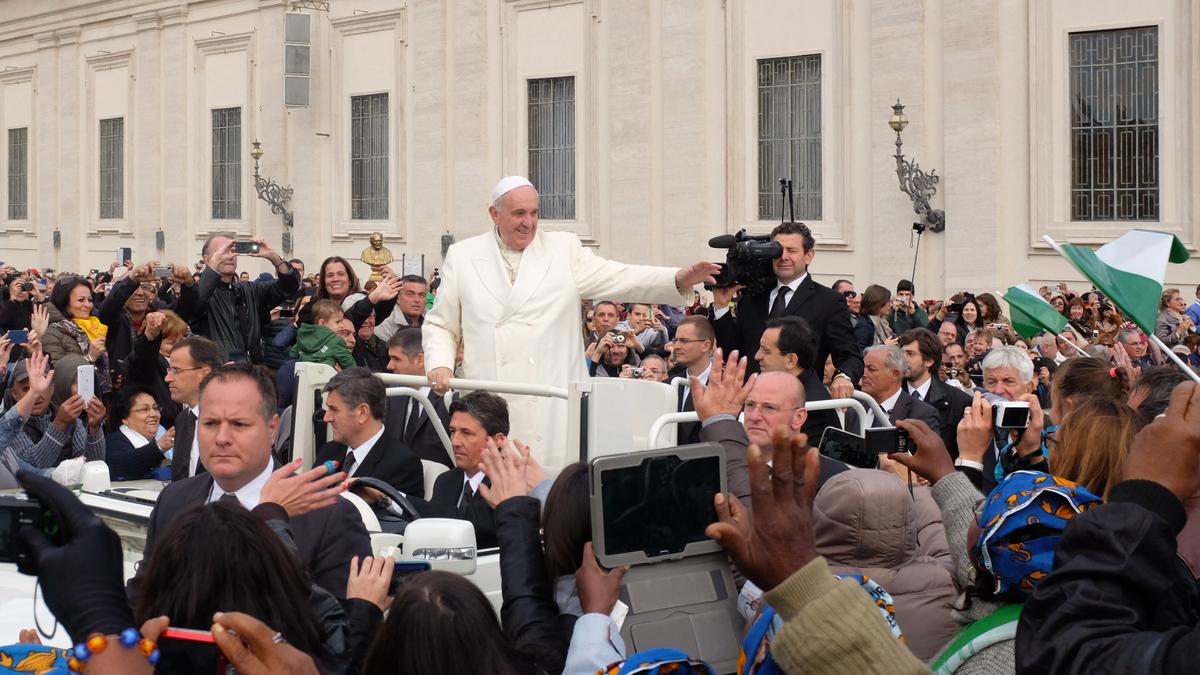For women, Pope Francis has brought revolutionary changes to the Catholic Church. This is not solely a matter concerning the Church; every woman should be aware of it, to affirm that even sacred rites can be reformed.
Pope Francis will be remembered not only for his deep humility and inclusive spirituality but also for steering revolutionary reforms that challenged year-old traditions. From the moment his papacy began in 2013, the first Jesuit to hold the position brought in revolutionary changes. He was driven by his own principle, simple but profound, to be a voice for the voiceless. In a patriarchal society where women have long been relegated to the sidelines of spiritual authority, Pope Francis’ remarkable changes shocked theological orthodoxy.
In 2016, he rewrote history by allowing women to participate in the Maundy Thursday foot-washing ceremony. This is a sacred re-enactment of Jesus Christ cleansing the feet of his 12 apostles. Pope Francis reformed the ceremony by declaring that it would be open to women too or as he put it, “to all the members of the people of God”. This ritual, which was traditionally reserved for men, symbolises humility, service, and compassion. By including women, he shattered a symbolic boundary that had reinforced the exclusion of women from the Church’s most revered practices.
This was not just a ceremonial change, a theologically loaded act, a direct challenge to the legacy that had long tied the spiritual leadership exclusive to maleness. Pope Francis, in his early celebrations of the rite, washed the feet of Muslim women, prisoners, and migrants — acts that stirred controversy among conservative factions of the Church. Yet he persisted. Later, he formalised the change by updating the Roman Missal, making women’s inclusion permanent. In 2025, churches across the world officially embraced this inclusive vision, with women participating in foot-washing ceremonies globally — a powerful visual testament to the message that men and women are equals in dignity and grace.
Further, the Pope’s Vatican appointments including women in the most powerful positions, are not just token gestures but structural shifts. Women, for the first time in the Catholic history, have been given the chance to take up key positions. He appointed Sister Nathalie Becquart the first woman with voting rights in the Synod of Bishops, an international body of Church leaders previously reserved for Cardinals and clergy. He named Francesca Di Giovanni, a laywoman, to a senior diplomatic role in the Secretariat of State, and brought women into the Vatican’s most powerful economic oversight body. The Pope condemned the exploitation of women, labelling it as a “sin against God”. He described the gender pay gap a “pure scandal” and advocated for equal pay for equal work. He criticised workplace discrimination against women, particularly the bias against hiring women due to potential pregnancies.
Pope Francis launched a synod on synodality, one of his boldest initiatives in 2021 (a multi-year global consultation involving laypeople, clergy, and bishops), as a bold response to the growing crisis of credibility and inclusivity within the Church. Historically, the Church has operated a hierarchical, top-down structure, with limited participation from laypeople, especially women and the marginalised. The synod on synodality marked a profound shift in the history of 2,000 years that everyday Catholics including laywomen have been granted not only a voice but also a vote in shaping Church direction. Out of 364 voting members, 54 were women, both nuns and laywomen. These women had equal voting rights alongside Cardinals, Bishops and priests. This is significant in the history of the Catholic Church as it repositions the Church as a listening body open to change and reform. This was more than administrative reform. It redefined the very nature of authority in the Church.
The Pope’s goal was not to dismantle the faith’s foundations, but to plant seeds of radical inclusion, to make the Church more aligned with the world it seeks to serve. Francis also extended his embrace to those often marginalised by tradition and custom, including the LGBTQ+ community, the poor, and the enslaved. His papacy was not about speaking to Catholics alone; it was about affirming the humanity of all. As a strong advocate of world peace, he consistently emphasised forgiveness, social justice, and interreligious dialogue as vital elements in achieving world peace. His advocacy extended to specific actions such as calling for a ceasefire in Gaza, and voicing for the rights of refugees. In doing so, Pope Francis proved that tradition need not be a cage. He suffered intense criticism from conservative theologians and media outlets. Accusations of blasphemy and betrayal followed him, yet he stood firm, not in defiance but in faith.
His reforms offer a profound lesson to the world: history and tradition are not immovable objects. They can be questioned, reimagined, and reformed with vision and courage. In an age of widening inequality, rising authoritarianism, and institutional distrust, Pope Francis has given the world a rare gift — a model of leadership grounded in humility, dialogue, and inclusion. In washing the feet of women and giving them a vote, Pope Francis has done what few leaders dare: he has chosen humility over hierarchy, peace over profit, and justice over precedent. Let the world follow him!
Published – May 11, 2025 02:58 am IST
